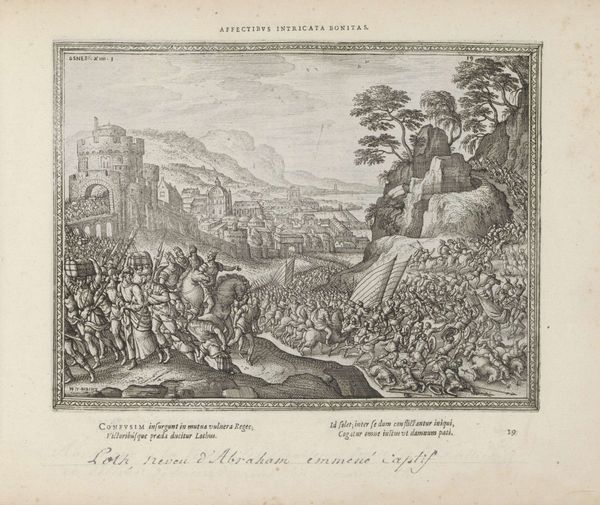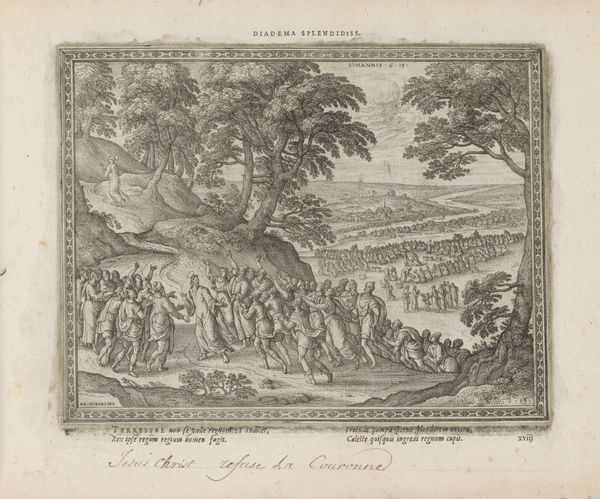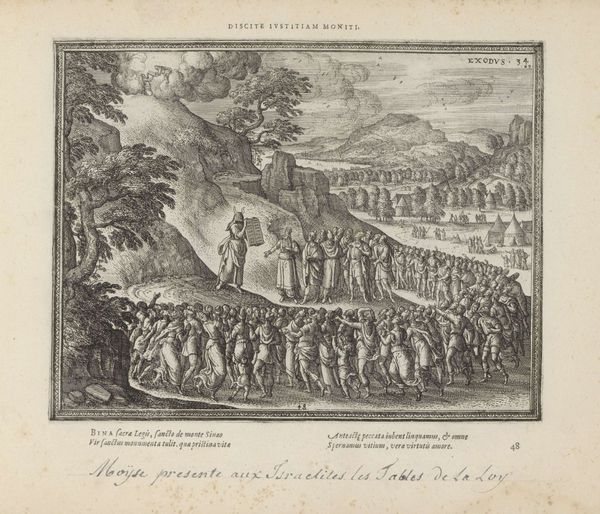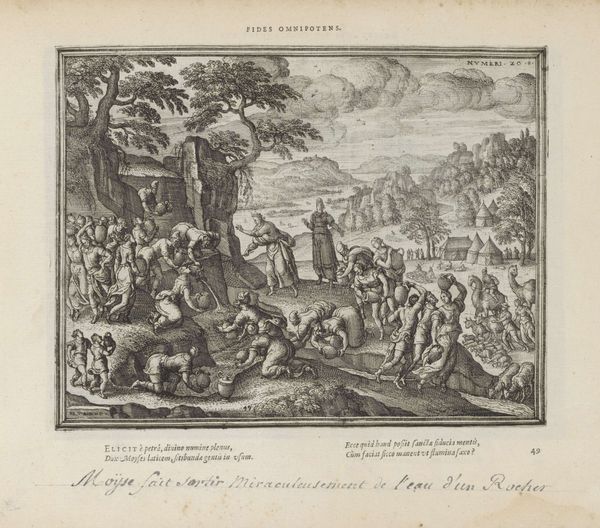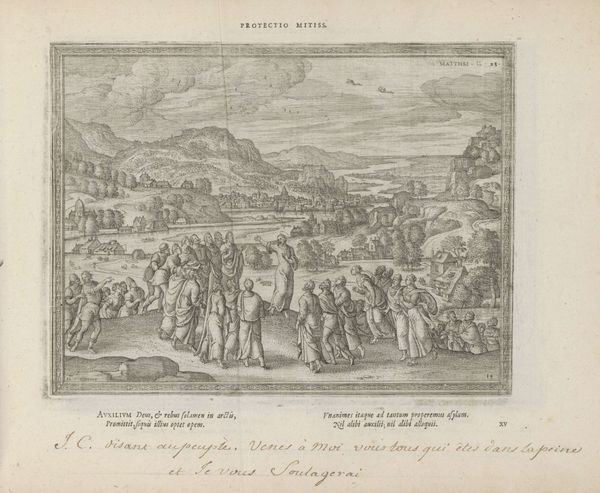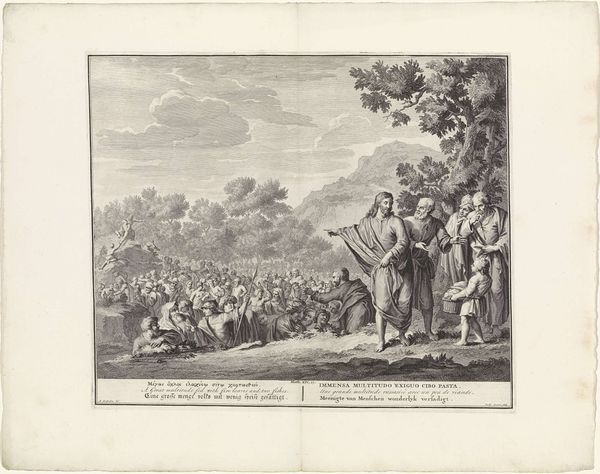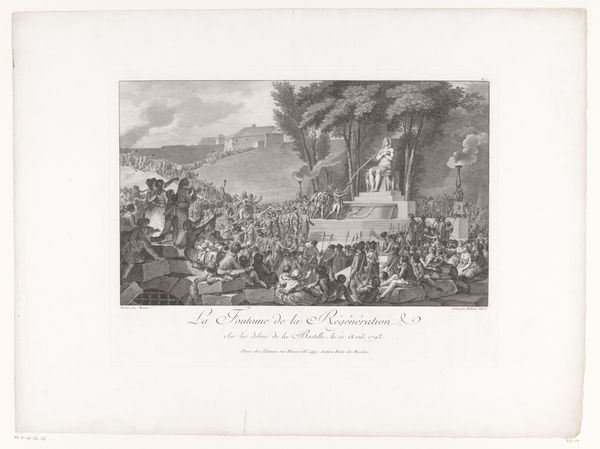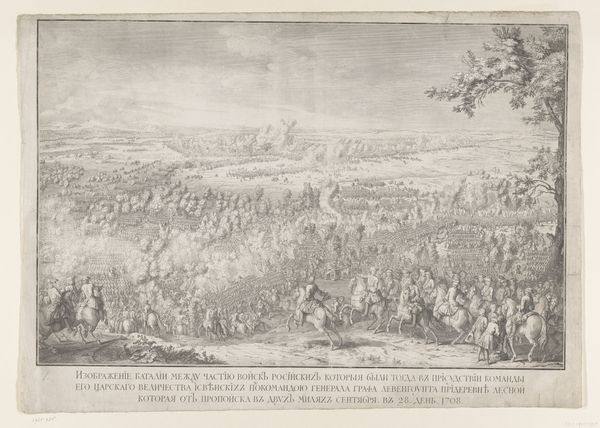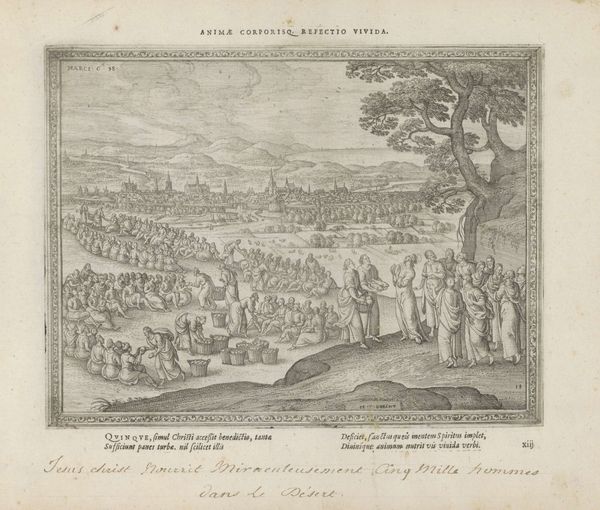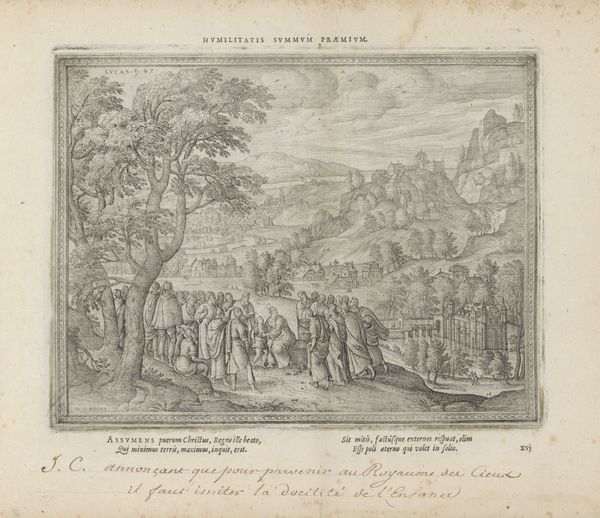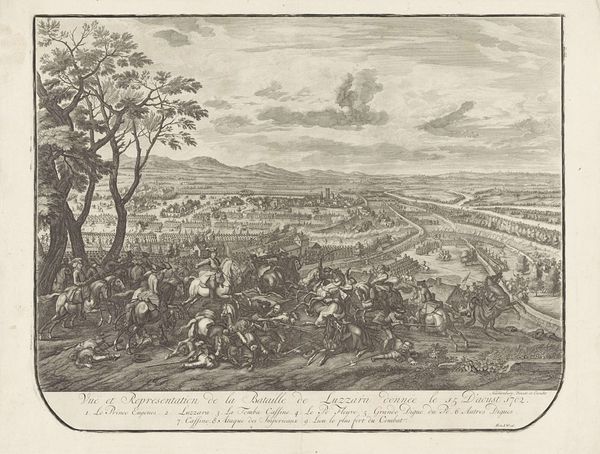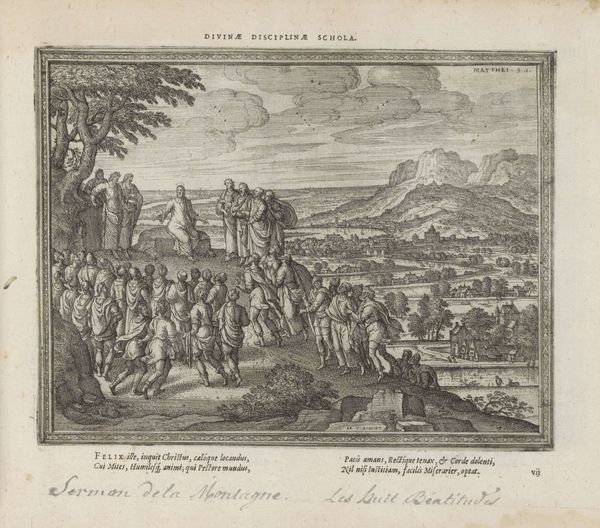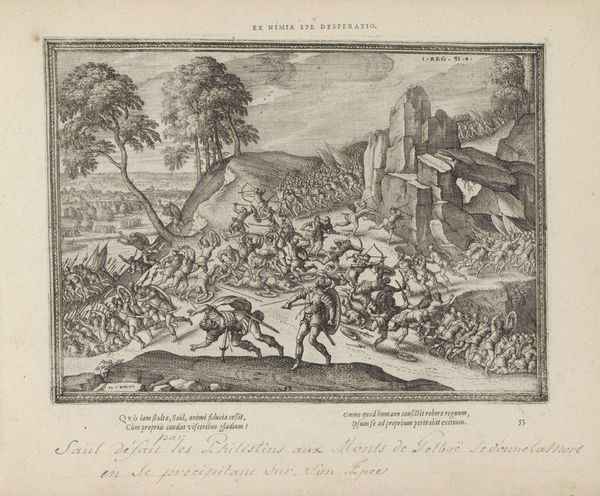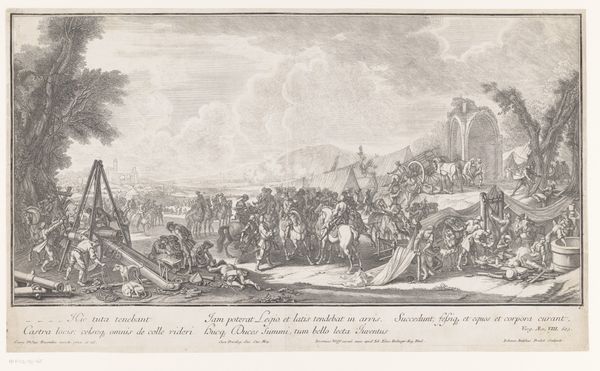
print, engraving
#
aged paper
# print
#
old engraving style
#
landscape
#
history-painting
#
engraving
Dimensions: height 186 mm, width 245 mm
Copyright: Rijks Museum: Open Domain
This print, Abraham freeing Lot, was made by Pieter van der Borcht around 1600, using the intaglio process of engraving. Think of engraving as a kind of reverse relief. The artist would have used a tool called a burin to manually cut lines into a copper plate, which then held the ink. This painstaking process required not only artistry but considerable skill and physical effort. The density of lines created areas of dark and light. Note the areas of dense lines, used to depict the battle scene, and the landscape in the background. The print’s appearance is directly linked to this labor-intensive process, which leaves its mark on every detail. Prints like this one were relatively affordable and could be widely distributed, helping to popularize biblical stories and artistic styles. Considering the material and processes used in its making allows us to see this print not just as a picture, but as an object deeply embedded in its time, reflecting both artistic skill and broader social and economic contexts.
Comments
No comments
Be the first to comment and join the conversation on the ultimate creative platform.
